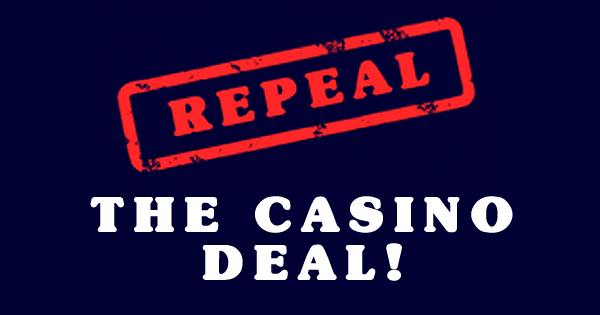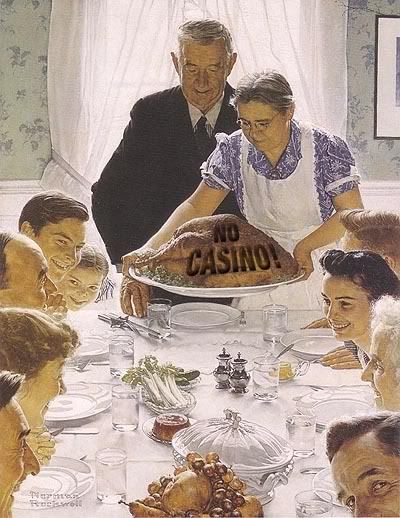Somehow, or maybe not, we are related. Distantly, if so. I don’t know her name. We just seem to show up at all the same wakes.
This time she’s got a baby with her. He’s very well behaved, with a full head of hair and a sweet smile.
"He’s got your eyes," I tell her.
"No." She replies a little bit too firmly, "He’s got his father's eyes."
I look around for the boy’s father but he must be in the other room with the throng of friends and relatives. We chat some more about mostly nothing, just passing the time until we can leave. And that’s when she mentions that she’s a single mom.
Something connects, and I look closer at the little boy.
Ten or so minutes go by, and my sister and mother and I have managed to make it across the room to a quiet corner, and that’s when I whisper to my mother what I’ve wanted to ask, “Is she the one? The one you told me about with the husband who…” She nods before I can finish the sentence.
It was 2007, and my mother and I were enjoying a visit out on the screen porch when talk got around, as it always did that summer, as to the possibility of a casino in Middleboro. “Those places are no good,” my mother said. And then she told me a story.
It was the story of someone she knew – a grand-niece or a daughter of a friend, something like that – someone who wanted very much to have a baby. She and her husband had tried for years to get pregnant, finally, but successfully attempting IVF. The procedure had been expensive. They got behind financially. Way behind. The woman, now pregnant, gave her husband the cash to pay some bills one morning. But while she was at work, he drove to a Rhode Island casino, thinking that maybe he could take that bill money and turn it into more bill money – and in the process lost it all. When he returned home, he realized he couldn’t pay the bills – or face his wife – and took his own life. He was laid to rest in a Middleboro cemetery. His baby boy was born several months later.
"Those places are no good," my mother repeated.
It had been a year since I’d heard that story. Sometimes I wondered if it were even real. Still, I’d often think about that little boy whose face I’d never seen, whose name I didn’t know.
If casino gambling comes to Massachusetts, none of us will see the face or know the name of every child left without a parent, or neglected by one, or abused by one.
But they’ll be there. The ones that get left off the balance sheet. The collateral damage. The folks who form what we have politely and ambiguously come to call '‘social costs'.
Except that now they’ll live in other towns in Massachusetts, places further north and east and west of Middleboro where, as of now, it takes too long for most people to drive to a casino to lose the bill money in less than a day.
I’m reminded of the map, the one with a circle around each of the three proposed Massachusetts casinos. Every circle represents a radius of 50 miles, and all together they encompass 319 cities and towns. All three of them overlap. The circles illustrate the National Gambling Impact Study Commission’s suggestion that the number of problem and addicted gamblers doubles within 50 miles of a new casino. A ring of fire.
"I fell in to a burning ring of fire. I went down,down,down, and the flames went higher."
I remember a man, when the map was first published, ridiculing it loudly to everyone who’d listen, pointing out that Middleboro is less than 50 miles from any Rhode Island casino, and insisting that they’d had no impact here.
Not for him.
His son still has a dad to teach him how to tie his shoes, and ride a bike, and throw a baseball.
"It’s all about choice," they like to say. "It's my choice, if I want to gamble my money or not."
But where’s that baby’s choice? I think his choice would be to grow up with a dad.
I think his choice would be to grow up in a world that didn’t make it so easy for his Dad to lose hope. That didn’t use people’s weaknesses to balance budget shortfalls. But he doesn’t get a vote.
How many times have I heard it, "we already have gambling addiction here…"?
I wonder if they said that when they built the first casino outside of Las Vegas. “We already have the problems, we might as well get the revenue.” That’s what they probably said.
And then someone looked over at that casino and said the same thing. And so another casino got built. And now, when people say that there’s already gambling addiction where they live, it’s because of that last casino that went up. The one not terribly far to drive to.
Because building a new casino never just ‘recaptures’ problem gamblers. It creates them.
With every new casino we light another another ring of fire.
In Iowa, before they built casinos, 1.7% of the population were problem gamblers. Three and a half years later, that figure had more than tripled to 5.4%. In New York, the percentage of people who reported having had a gambling problem increased from 4.2% to 7.3% in the first decade of gambling expansion. In Gulfport, Mississippi, suicides increased by 213 percent in the first two years after casinos were built, while in nearby Biloxi, suicide attempts jumped by 1,000 percent in the first year alone.
People will tell you it’s all about jobs, that with three casinos and a slot parlor there’s the potential to create anywhere from 8,000 to 16,000 jobs. But how does that truly compare with creating an additional 300,000 people in Massachusetts who’ll live along a state-sponsored spectrum that ranges from a broken home on one end to a funeral on the other?
In 2010 a state senator from Cape Cod stood during the casino debate and told the story about how, more than once, his father had abandoned him and his siblings on a local beach while he went to the track. This all probably happened more than forty years ago, but the memory of watching the sun go down and wondering how he was going to get home and what he was going to eat still caused the the senator’s voice to crack as he fought back tears. Like ripples on water, a single problem gambler can create a wake of financial hardship and emotional devastation that can last for decades, if not forever.
Had there been no casino in Rhode Island, that baby’s father might have driven to a Connecticut casino to find a reason to end his life. But he might not have. It’s a long round trip to take while your wife’s at work. But if there were no New England casinos, he’d be alive right now.
He wouldn’t be watching casino commercials every day on TV or listening to them on the radio. Commercials that make casinos seem as innocuous as Disneyland, and as brimming with possibilities as a golden ticket to Wonka World. He wouldn’t have had such an easy excuse to lose the bill money and to feel like he’d failed his family. He’d be here showing off his beautiful baby boy to all the relatives.
"All that money’s just going across the border," they tell us.
I look across the room at the baby and I think, you know what? Let it go…
My Aunt Ginny comes over to say hello, and says she can’t believe it’s really me. I only recognize her from old photographs but, according to family lore, she was the one who took care of me when I was very young and my mother had to work.
Aunt Ginny, whose gravity-defying hair would make any iconic country western singer proud, left Massachusetts for Oklahoma back in the 70's. I have no memory of her, but love her instantly. She is funny and cheerful and I’m grateful to have her sitting with us, taking our minds off the wake and the baby and casinos.
While we’re talking, a woman with a breathing tube in her throat stops by and says hello to my mother, who introduces us. She registers a flash of recognition, and an eyebrow is arched.
"So," she says, "You’re the daughter who’s against the casino."
She says this as if she actually means, "So, you’re the daughter who recently escaped from a mental institution."
Somehow, even at a wake, these people manage to find me.
Aunt Ginny laughs. “What’s the matter with casinos?” she asks, "I love the casino! I’ve got one right down the end of my street. I’ve won big a few times there, too."
My mother leans in and whispers in my ear, "Ask her how much she’s lost…"
But there’s no need. Aunt Ginny is obviously a woman of modest means.
I get up to leave. I have a board meeting to attend in Lakeville that evening. Probably another shouting match. I’m tired, I’d rather go home, or out to a restaurant with my mother and sister and Aunt Ginny.
Instead we gather in the hall for hugs and goodbyes, and agree that wouldn’t it be nicer to get together somewhere besides funerals and wakes.
Within the year my Aunt Ginny will be dead, unable to afford health insurance, and living right down the street from a casino.
But that evening her laughter was still with me as I lingered on the side street, decompressing in the quiet sanctuary of my car, safe for now. I allow the wake and the family and the lady with the breathing tube to wash away. All that’s left is the little boy, who’s real now. A little boy with a sweet smile, a full head of hair and his father’s eyes.
If only his father’s eyes could see them.



















